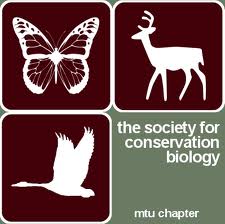Open Letter From the Society for Conservation Biology, February 28, 2013
The Society for Conservation Biology sent a letter to the Environmental Protection Agency, Department of Energy, and Department of Interior requesting that those three agencies conduct research on the biodiversity-related impacts of unconventional natural gas exploration involving hydraulic fracturing technology as part of a larger federal effort to determine how best to regulate and manage this rapidly-growing industry.
Hydraulic fracturing (“fracking”) is the process by which oil or natural gas is extracted from dense geologic formations through fractures created with pressurized fluid. The recent development of horizontal drilling technology has made it profitable to scale-up natural gas production in areas where it was previously uneconomical to develop natural gas. Projections estimate that natural gas production by this method will double in the next 30 years, with an additional 60,000 wells to be constructed in the Marcellus shale region of the eastern U.S. alone.
In response to this rapid development and general concerns about the possibility that fracking may contaminate freshwater supplies both above and below ground, the EPA, DOE, and DOI signed a Multi-Agency Collaboration on Unconventional Oil and Gas Research Memorandum of Understanding (MOU) in April of 2012 to ensure “the prudent development of energy sources while protecting human health and the environment.” The MOU called for a prioritized research agenda that will identify critical knowledge gaps related to fracking impacts, as well as an explicit timeline for developing this document. Thus far, the three agencies have failed to meet the MOU’s mandate, which called for a draft research plan being published for public review and comment by October of 2012 and a final research plan being published by January of 2013.
Among the 1,261 peer-reviewed studies of fracking currently published, there appear to be only a few that directly focus on the impacts of fracking on biological diversity or ecosystem health. Because of the potential risks and scientific uncertainties surrounding unconventional fracking practices, SCB suggested research priorities to address biodiversity for the multi-agency research collaboration.
While fracking is exempted from meeting the regulatory requirements of some environmental laws, including the Safe Drinking Water Act, the Federal government still retains authority under other environmental protection laws to help prevent environmental contamination or other damage caused by fracking. Accordingly, SCB also recommended to the agencies interim policy measures that can help to ensure the health of the nation’s aquatic and terrestrial ecosystems by affording additional regulatory protection pending the completion of those studies. States also have the ability to control most of these risks but in many cases have not enacted such measures.
Read the full letter HERE.

